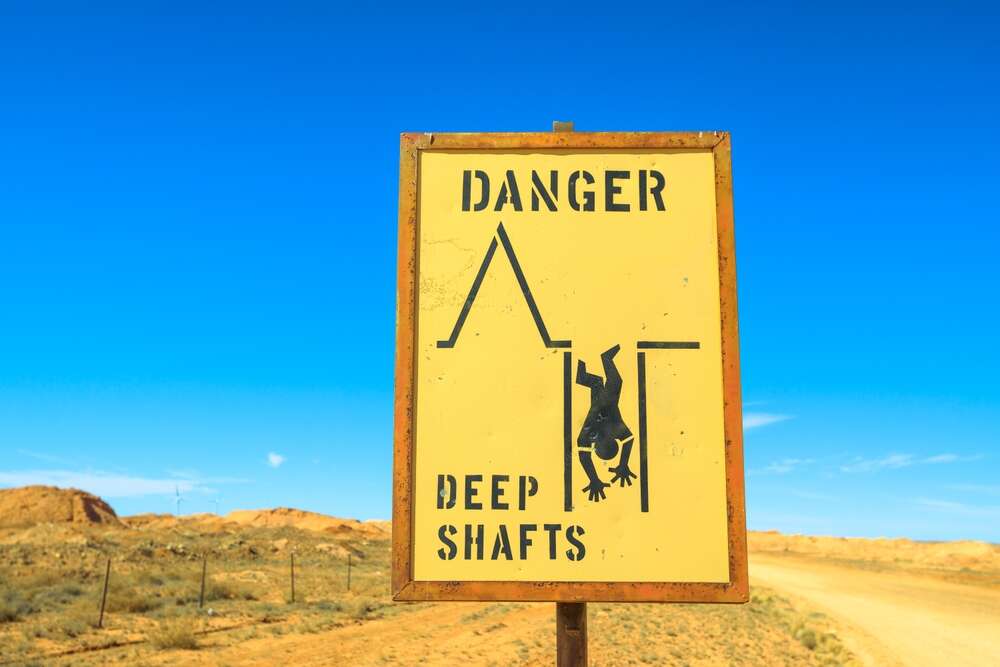

- Australian banks ANZ, Commonwealth Bank of Australia, NAB and Westpac have provided A$57.5bn ($37.3bn) to the fossil fuel sector since the Paris Agreement, according to Market Forces.
- The banks increased their lending to the sector by 15% in 2022, with a total of $13bn provided between January 2021 and December 2022.
- Whitehaven Coal is in the process of refinancing an A$1bn loan with NAB and Westpac to help fund new coal mining activities.
The Labor win in the Australian elections last year and the more environmentally focused prime minister Anthony Albanese was expected to shift the country’s focus away from coal.
But little appears to have changed. Despite having their mines blocked by protesters, seeing their assets downgraded or being talked into extinction by activists, the big four Australian banks – ANZ, the Commonwealth Bank of Australia, NAB and Westpac – have funded fossil fuel industries to the tune of A$57.5bn ($37.3bn) since the Paris Agreement was signed, according to environmental activist group Market Forces.
The relationship between Australian banks and fossil fuels is nothing new. A report from the research and shareholder advocacy organisation Australasian Centre for Corporate Responsibility almost a decade ago – in April 2014 – complained that, while all four banks had policies that recognised the impact of climate change, none of them had either disclosed their financed emissions or had a public target to reduce those financed emissions.
Nothing has changed. “ANZ, CommBank, NAB and Westpac need to come clean with millions of customers who expect more than smoke and mirrors on climate action,” says Will van de Pol, acting chief executive officer of Market Forces.
Between January 2021 and December last year, they provided a total of $13bn to the sector increasing their year-on-year lending by 15% in 2022.
“The reckless fossil fuel expansion plans of some of their clients are completely incompatible with the climate goals Australia’s big banks claim to support,” says van de Pol. “The big four are making global warming worse by bankrolling climate wreckers like Santos, Woodside and Whitehaven Coal.”
Australia’s most egregious climate wreckers
The Market Forces report, published this week, says ANZ has loaned A$4.6bn to fossil fuels in the last two years, the most of any of the big four banks [see chart].
Westpac is no longer the lowest lender to fossil fuels of the big four, providing A$2.3bn in the last two years. The bank also faces criticism for continuing to have active loans to what the report calls “Australia’s most egregious climate wreckers”.
There is a ray of light for the Commonwealth Bank, which has reined in fossil fuel lending over the last two years and now provides the least of the big four, (A$1.6bn).
The report points out the Commonwealth Bank intends to update its climate policy this year, and Market Forces urges the bank to become a leader in the sector by ruling out finance for all new and expanded fossil fuel projects and the companies pursuing them.
The report’s largest ire is reserved for NAB – “Australia’s most regressive bank” – after it increased its lending to fossil fuels in the last two years to be within spitting distance of ANZ at A$4.5bn.
The loophole that the report finds all four banks using is corporate finance. Even though the banks have introduced restrictions on direct funding of some new fossil fuel projects, they have continued to provide corporate finance – accounting for almost 70% of their total fossil fuel lending – to the companies building such projects.
“The big four banks have no policies to limit their funding to companies expanding fossil fuels, and they are exploiting this policy loophole to continue pouring customers’ money into companies steering us towards climate catastrophe,” the report says.
Bank funding contradicts climate pledges
While ANZ, the Commonwealth Bank and Westpac have yet to respond, NAB rejects the Market Forces report.
“The report released by Market Forces and its methodology doesn’t reflect NAB’s current exposure to fossil fuel projects or the progress we’re making with our customers in the transition to net-zero,” said NAB chief climate officer Jacqueline Fox in a statement this week.
She points out the data in the report includes transactions and companies involved in rail transport, major infrastructure, steel manufacturing, industrial processes, diversified power generation companies with significant renewable portfolios and others.
The credibility of her statement is undermined by the fact that NAB is still funding new mining work.
Among other new projects, coal mining company Whitehaven Coal, for example, has announced it intends to start production at the Vickery Coal mine, about 25km north of Gunnedah in New South Wales, this year.
Expenditure of around A$150m will be invested to overhaul mining equipment, establish water management infrastructure, construct modest site facilities and establish a box cut. “Construction is expected to commence in June 2023,” the firm confirmed in its most recent quarterly update.
Campaigning and NGO support organisation BankTrack points out these plans have been backed by NAB and Westpac. And although the A$1bn loan facility was due to end in July this year, it is currently being refinanced. “In the middle of that process now,” said Kevin Ball, Whitehaven's chief financial officer, on the group’s investor call at the end of April.
“NAB and Westpac’s financing of a company pursuing several new coal projects comes at the expense of other customers and everyday Australians facing worsening floods, bushfires and heatwaves,” BankTrack said.
“Banks are hiding behind a smokescreen, claiming to be committed to net zero by 2050 while funding new fossil fuel developments that would lock in decades of emissions,” says van de Pol. It is hard to disagree.
[Read more: The rise of solar project financing in Australia]





